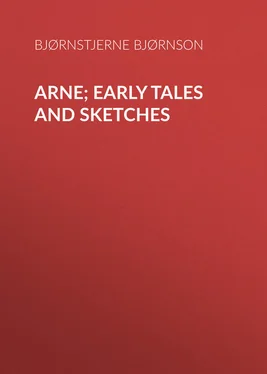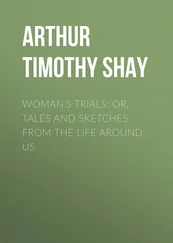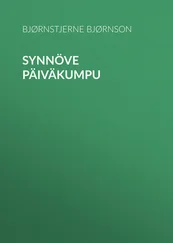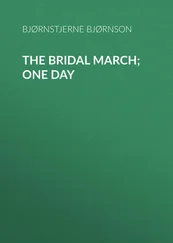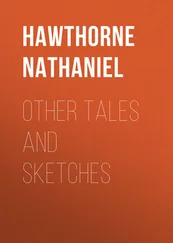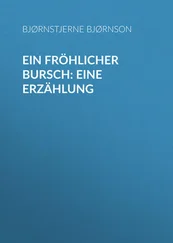Bjørnstjerne Bjørnson - Arne; Early Tales and Sketches
Здесь есть возможность читать онлайн «Bjørnstjerne Bjørnson - Arne; Early Tales and Sketches» — ознакомительный отрывок электронной книги совершенно бесплатно, а после прочтения отрывка купить полную версию. В некоторых случаях можно слушать аудио, скачать через торрент в формате fb2 и присутствует краткое содержание. Жанр: foreign_antique, foreign_prose, на английском языке. Описание произведения, (предисловие) а так же отзывы посетителей доступны на портале библиотеки ЛибКат.
- Название:Arne; Early Tales and Sketches
- Автор:
- Жанр:
- Год:неизвестен
- ISBN:нет данных
- Рейтинг книги:4 / 5. Голосов: 1
-
Избранное:Добавить в избранное
- Отзывы:
-
Ваша оценка:
- 80
- 1
- 2
- 3
- 4
- 5
Arne; Early Tales and Sketches: краткое содержание, описание и аннотация
Предлагаем к чтению аннотацию, описание, краткое содержание или предисловие (зависит от того, что написал сам автор книги «Arne; Early Tales and Sketches»). Если вы не нашли необходимую информацию о книге — напишите в комментариях, мы постараемся отыскать её.
Arne; Early Tales and Sketches — читать онлайн ознакомительный отрывок
Ниже представлен текст книги, разбитый по страницам. Система сохранения места последней прочитанной страницы, позволяет с удобством читать онлайн бесплатно книгу «Arne; Early Tales and Sketches», без необходимости каждый раз заново искать на чём Вы остановились. Поставьте закладку, и сможете в любой момент перейти на страницу, на которой закончили чтение.
Интервал:
Закладка:
"The vale is full of trouble, but here sweet Peace may reign;
Within this quiet forest no bailiffs may distrain;
None fight, as in the vale, in the Blessed Church's name,
Yet if a church were here, it would no doubt be just the same.
"How peaceful is the forest: – true, the hawk is far from kind,
I fear he now is striving the plumpest sparrow to find;
I fear yon eagle's coming to rob the kid of breath,
And yet perchance if long it lived, it might be tired to death.
"The woodman fells one tree, and another rots away,
The red fox killed the lambkin white at sunset yesterday;
The wolf, though, killed the fox, and the wolf itself must die,
For Arne shot him down to-day before the dew was dry.
"I'll hie me to the valley back – the forest is as bad;
And I must see to take good heed, lest thinking drive me mad.
I saw a boy in my dreams, though where I cannot tell —
But I know he had killed his father – I think it was in Hell." 11 11 Adapted to the metre of the original, from the translation of Augusta Plesner and S. Rugeley-Powers.
He came home and told his mother that she might send out in the parish after another herd-boy; he wanted to manage the gard himself. Thus it was arranged; but the mother was always after him with warnings not to overtax himself with work. She used also to prepare such good meals for him at this time that he often felt ashamed; but he said nothing.
He was working at a song, the refrain of which was "Over the lofty mountains." He never succeeded in finishing it, and this was chiefly because he wanted to have the refrain in every other line; finally he gave it up.
But many of the songs he made got out among the people, where they were well liked; there were those who wished very much to talk with him, especially as they had known him from boyhood up. But Arne was shy of all whom he did not know, and thought ill of them, chiefly because he believed they thought ill of him.
His constant companion in the fields was a middle-aged man, called Upland Knut, who had a habit of singing over his work; but he always sang the same song. After listening to this for a few months, Arne was moved to ask him if he did not know any others.
"No," was the man's reply.
Then after the lapse of several days, once when Knut was singing his song, Arne asked:
"How did you chance to learn this one ?"
"Oh, it just happened so," said the man.
Arne went straight from him into the house; but there sat his mother weeping, a sight he had not seen since his father's death. He pretended not to notice her, and went toward the door again; but he felt his mother looking sorrowfully after him again and he had to stop.
"What are you crying for, mother?"
For a while his words were the only sound in the room, and therefore they came back to him again and again, so often that he felt they had not been said gently enough. He asked once more: —
"What are you crying for?"
"Oh, I am sure I do not know;" but now she wept harder than ever.
He waited a long time, then was forced to say, as courageously as he could: —
"There must be something you are crying about!"
Again there was silence. He felt very guilty, although she had said nothing, and he knew nothing.
"It just happened so," said the mother. Presently she added, "I am after all most fortunate," and then she wept.
But Arne hastened out, and he felt drawn toward the Kamp gorge. He sat down to look into it, and while he was sitting there, he too wept. "If I only knew what I was crying for," mused Arne.
Above him, in the new-plowed field, Upland Knut was singing his song: —
"Ingerid Sletten of Willow-pool
Had no costly trinkets to wear;
But a cap she had that was far more fair,
Although it was only of wool.
"It had no trimming, and now was old,
But her mother who long had gone
Had given it her, and so it shone
To Ingerid more than gold.
"For twenty years she laid it aside,
That it might not be worn away;
'My cap I'll wear on that blissful day
When I shall become a bride.'
"For thirty years she laid it aside
Lest the colors might fade away.
'My cap I'll wear when to God I pray
A happy and grateful bride.'
"For forty years she laid it aside,
Still holding her mother as dear;
'My little cap, I certainly fear
I never shall be a bride.'
"She went to look for the cap one day
In the chest where it long had lain;
But ah! her looking was all in vain, —
The cap had moldered away." 12 12 Translated by Augusta Plesner and S. Rugeley-Powers.
Arne sat and listened as though the words had been music far away up the slope. He went up to Knut.
"Have you a mother?" asked he.
"No."
"Have you a father?"
"Oh, no; I have no father."
"Is it long since they died?"
"Oh, yes; it is long since."
"You have not many, I dare say, who care for you?"
"Oh, no; not many."
"Have you any one here?"
"No, not here."
"But yonder in your native parish?"
"Oh, no; not there either."
"Have you not any one at all who cares for you?"
"Oh, no; I have not."
But Arne went from him loving his own mother so intensely that it seemed as though his heart would break; and he felt, as it were, a blissful light over him. "Thou Heavenly Father," thought he, "Thou hast given her to me, and such unspeakable love with the gift, and I put this away from me; and one day when I want it, she will be perhaps no more!" He felt a desire to go to her, if for nothing else only to look at her. But on the way, it suddenly occurred to him: "Perhaps because you did not appreciate her you may soon have to endure the grief of losing her!" He stood still at once. "Almighty God! what then would become of me?"
He felt as though some calamity must be happening at home. He hastened toward the house; cold sweat stood on his brow; his feet scarcely touched the ground. He tore open the passage door, but within the whole atmosphere was at once filled with peace. He softly opened the door into the family-room. The mother had gone to bed, the moon shone full in her face, and she lay sleeping calmly as a child.
CHAPTER VI
Some days after this, mother and son, who of late had been more together, agreed to be present at the wedding of some relatives at a neighboring gard. The mother had not been to any party since she was a girl.
They knew few people at the wedding, save by name, and Arne thought it especially strange that everybody stared at him wherever he went.
Once some words were spoken behind him in the passage; he was not sure, but he fancied he understood them, and every drop of blood rushed into his face whenever he thought of them.
He could not keep his eyes off the man who had spoken these words; finally, he took a seat beside him. But as he drew up to the table he thought the conversation took another turn.
"Well, now I am going to tell you a story, which proves that nothing can be buried so deep down in night that it will not find its way into daylight," said the man, and Arne was sure he looked at him . He was an ill-favored man, with thin, red hair encircling a great, round brow. Beneath were a pair of very small eyes and a little bottle-shaped nose; but the mouth was very large, with very pale, out-turned lips. When he laughed, he showed his gums. His hands lay on the table: they were clumsy and coarse, but the wrists were slender. He looked sharp and talked fast, but with much effort. People nicknamed him the Rattle-tongue, and Arne knew that tailor Nils had dealt roughly with him in the old days.
Читать дальшеИнтервал:
Закладка:
Похожие книги на «Arne; Early Tales and Sketches»
Представляем Вашему вниманию похожие книги на «Arne; Early Tales and Sketches» списком для выбора. Мы отобрали схожую по названию и смыслу литературу в надежде предоставить читателям больше вариантов отыскать новые, интересные, ещё непрочитанные произведения.
Обсуждение, отзывы о книге «Arne; Early Tales and Sketches» и просто собственные мнения читателей. Оставьте ваши комментарии, напишите, что Вы думаете о произведении, его смысле или главных героях. Укажите что конкретно понравилось, а что нет, и почему Вы так считаете.
